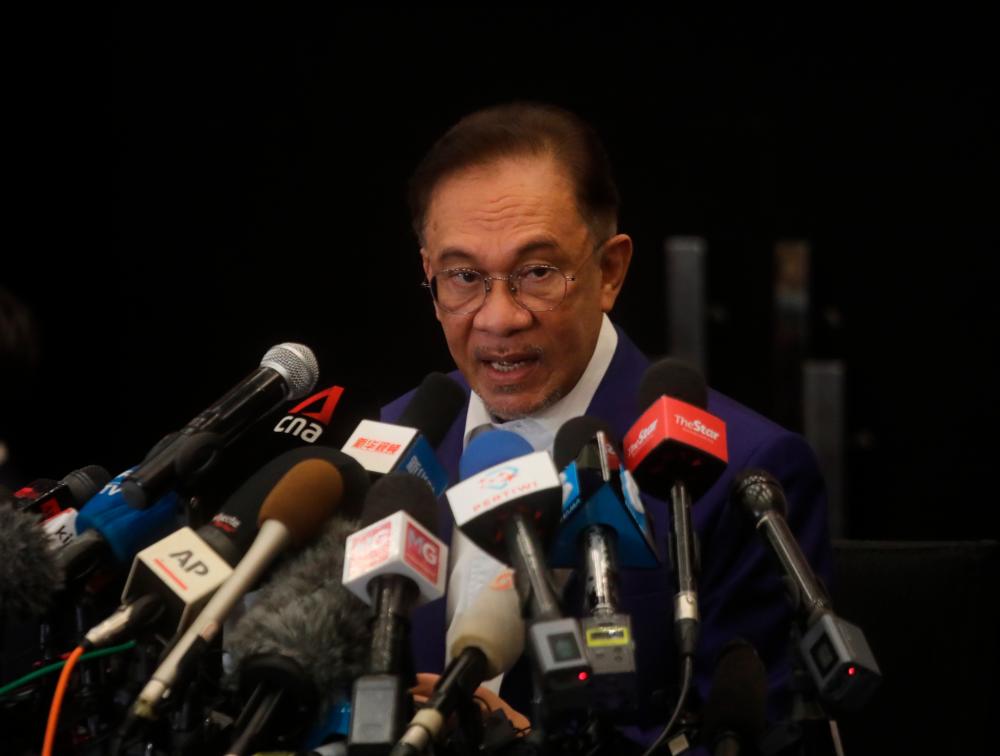PETALING JAYA: The open tender system will reduce political interference, lobbying, nepotism and cronyism. It will also reduce opportunities for corruption, said former treasury secretary-general Tan Sri Sheriff Kassim.
He was commenting on Prime Minister Datuk Seri Anwar Ibrahim’s (pix) recent instruction to civil servants that approval for government procurement can no longer be given without a tender process.
Anwar said his government will not allow leakages or corruption to continue in the country, and that to ensure corruption will not take place, the approval and procurement process without a tender should no longer be allowed.
Sheriff said the open tender system has always been a part of the Finance Ministry’s regulations.
As it is more transparent, bidding for a project will be more competitive and bidders will try to give the best possible price.
“The treasury will make its cost estimate before the tender is open. If the bidding price is too low, it might not be a practical offer, therefore the treasury studies all open tender bids carefully before awarding the contract,” he said, adding that having open tenders do not mean corruption will be eliminated but it will be reduced.
Sherrif said in certain cases it might not be practical to have open tenders, for example when it involves military projects or there might be only one supplier for the product.
He said ministries are not allowed to depart from the standard practice of having an open tender, they have to give the reason as to why they want to hold direct negotiations with a contractor.
If they want to avoid the open tender system, the reason must be justified, he said.
Deputy Finance Minister Datuk Seri Ahmad Maslan said on Wednesday the implementation of an open tender policy would lead to cost reduction for the government while boosting national income.
Economist Tan Sri Ramon Navaratnam said the open tender system is best if it is done in a transparent and accountable manner. In a closed system those involved can get “a few friends” to bid for the tender before it is awarded to one of them.
“In an open bidding system, there is a set number of pre-qualifiers, such as capability and track record. The whole process is very strict and the bids cannot be shared with others, or the process will be corrupted.
“If done well, the system will reduce leakages and save money for the government, but if controls are lax, then leakages will become a problem. The possibility of corruption exists if those involved in the open tender are in cahoots with the bidders,” said the former deputy treasury secretary-general and Transport Ministry secretary-general.
Ramon also said the lowest tender bid might not be best because the winner may not be able to deliver the project or meet the required quality.
“Before a bid is awarded in an open tender system, all bidders must be carefully scrutinised to ensure the winner can deliver. Failure to deliver even in an open system will cause the government to lose money.”









